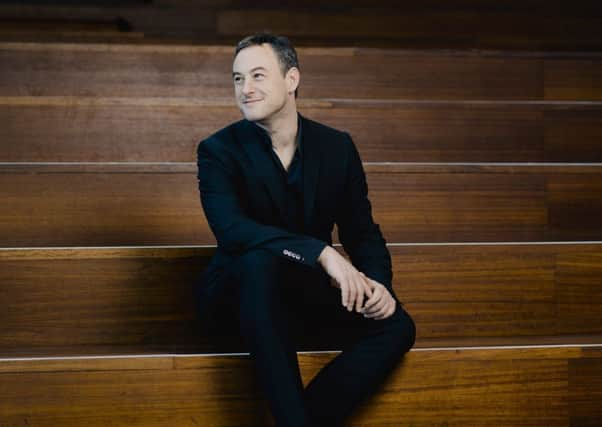Scottish Ensemble to experiment with dual-venue concerts


“The spaces where we make music are so important,” explains Jonathan Cohen, cellist, harpsichordist and the Ensemble’s guest director for the concerts. “Not just for acoustical reasons, but for aesthetic, historical and cultural reasons too.” He’s a major international figure in early music, founder of crack London-based period ensemble Arcangelo, and the ideal person to lead the Scottish Ensemble in this repertoire, according to its artistic director, Jonathan Morton: “He’s an absolutely wonderful musician, and a very enabling presence. He’s deeply immersed in the Baroque world – much more than I am – and to have his input to the group will be hugely beneficial.”
It was Morton, in fact, who was the main driver behind these concerts’ two-venue concept. “We’ve experimented with performances in different spaces for the last few seasons,” he explains, “and in fact, every time we think of a new idea, we think about venues – what kind of interesting space could this music be performed in?”
Advertisement
Hide AdAdvertisement
Hide AdWhat does he think this set-up will bring to the audience’s experience of the music? “It’ll be interesting to see, if people stretch their legs and go into another space, whether that might refresh their minds – or whether it might even work against it. I have no idea, and we’ll have to find out.” Most importantly, says Morton, it’s about playfulness, not earnestness. “There’s nothing too fussy about this idea. It’s not a heavy, didactic thing to change the venues. But then again, it might end up having quite a profound effect.”
Cohen took the lead in programming these concerts. “All these composers were famous innovators,” he explains, “and they were also first and foremost musicians directing from their instruments. To be a composer at that time meant bringing together musicians and creating new music for social events and patrons, such as the church or the state.”
Vivaldi and Corelli will probably be most familiar to listeners, as will Biber to anybody who caught Rachel Podger’s masterful survey of his idiosyncratic Rosary Sonatas (one of which Morton plays) during this year’s Edinburgh International Festival. Least familiar, possibly, is Locatelli. “I think of him as the Baroque Paganini,” laughs Cohen. “He built more dramatically on what went before him. The concerto grosso we’re playing, called Il piano d’Arianna, is inspired by the Greek myth of Arianna, abandoned on an island by Theseus. So the solo violinist is clearly the weeping protagonist, and it’s almost an opera without words.”
What brings this repertoire together, he feels, is virtuosity. “I’m actually interested in the meaning of that word. It actually comes from virtuous, in the sense of being greatly skilled. Musicians and artists were inventing all the time, pushing boundaries with their instruments and developing new types of music to match technical advances. You can hear the energy and freshness of that kind of virtuosity in this music.”
In its playful experimentalism, and its gentle sense of provocation, the Scottish Ensemble looks to be devoting almost as much creativity to the way it performs as it does to the performances themselves – and not for the first time. David Kettle
The Scottish Ensemble’s Baroque: Take Two concerts are in Edinburgh, 16 October, Inverness, 17 October, Glasgow, 18 October, Perth, 19 October and London 21 October, www.scottishensemble.co.uk